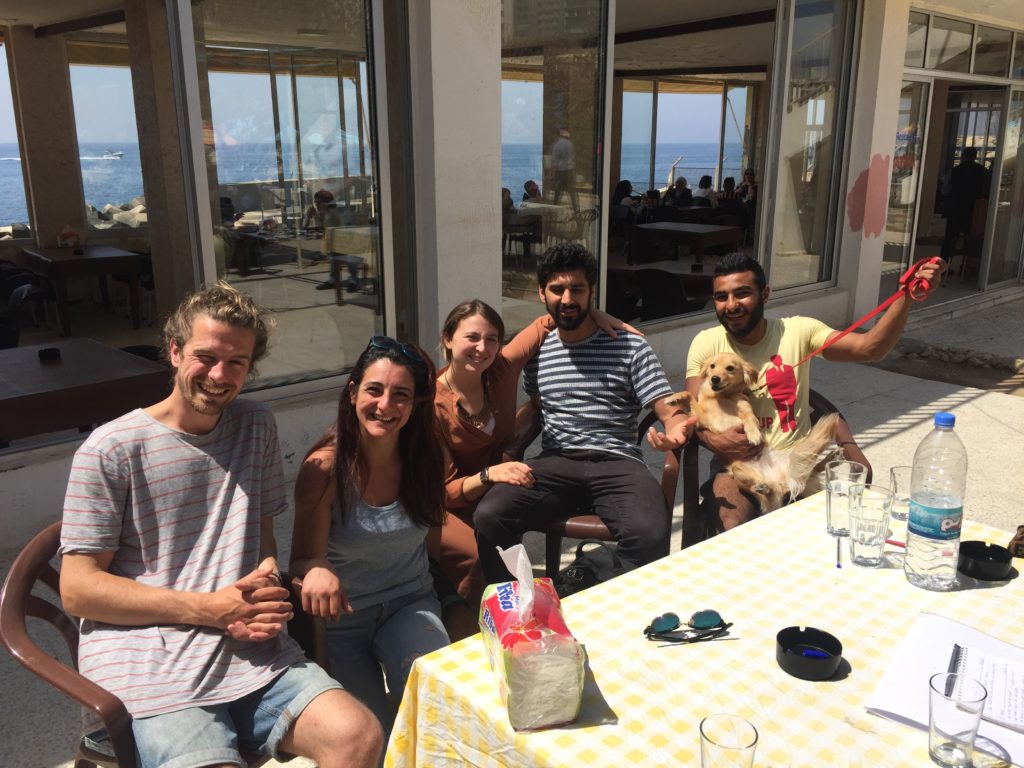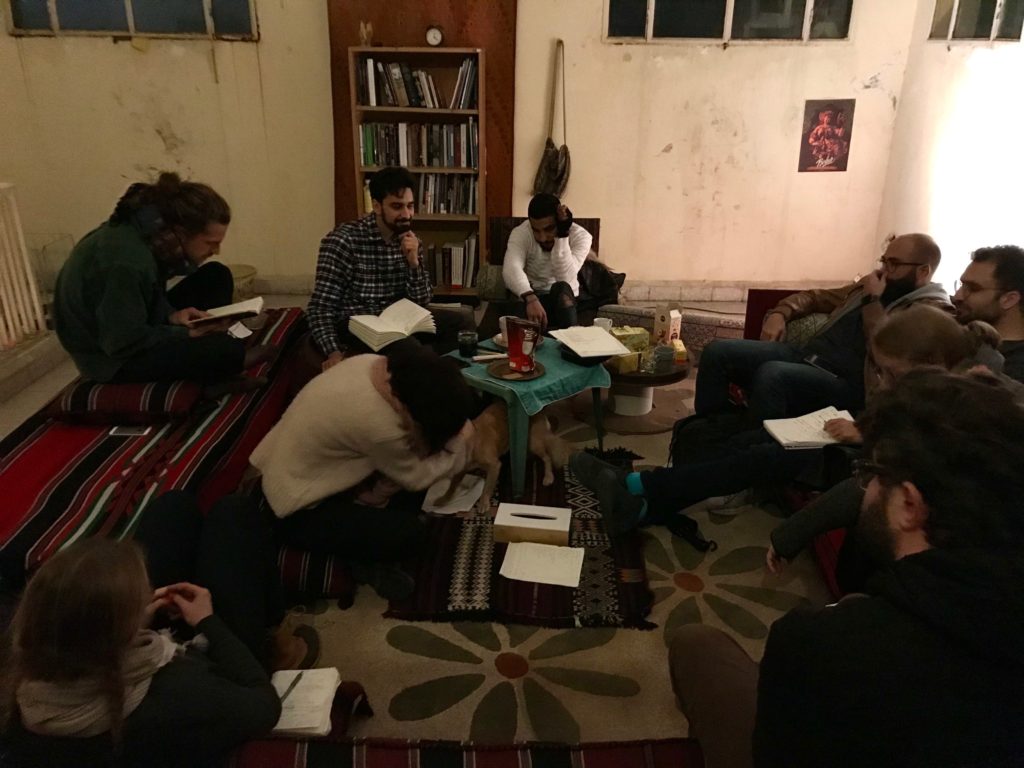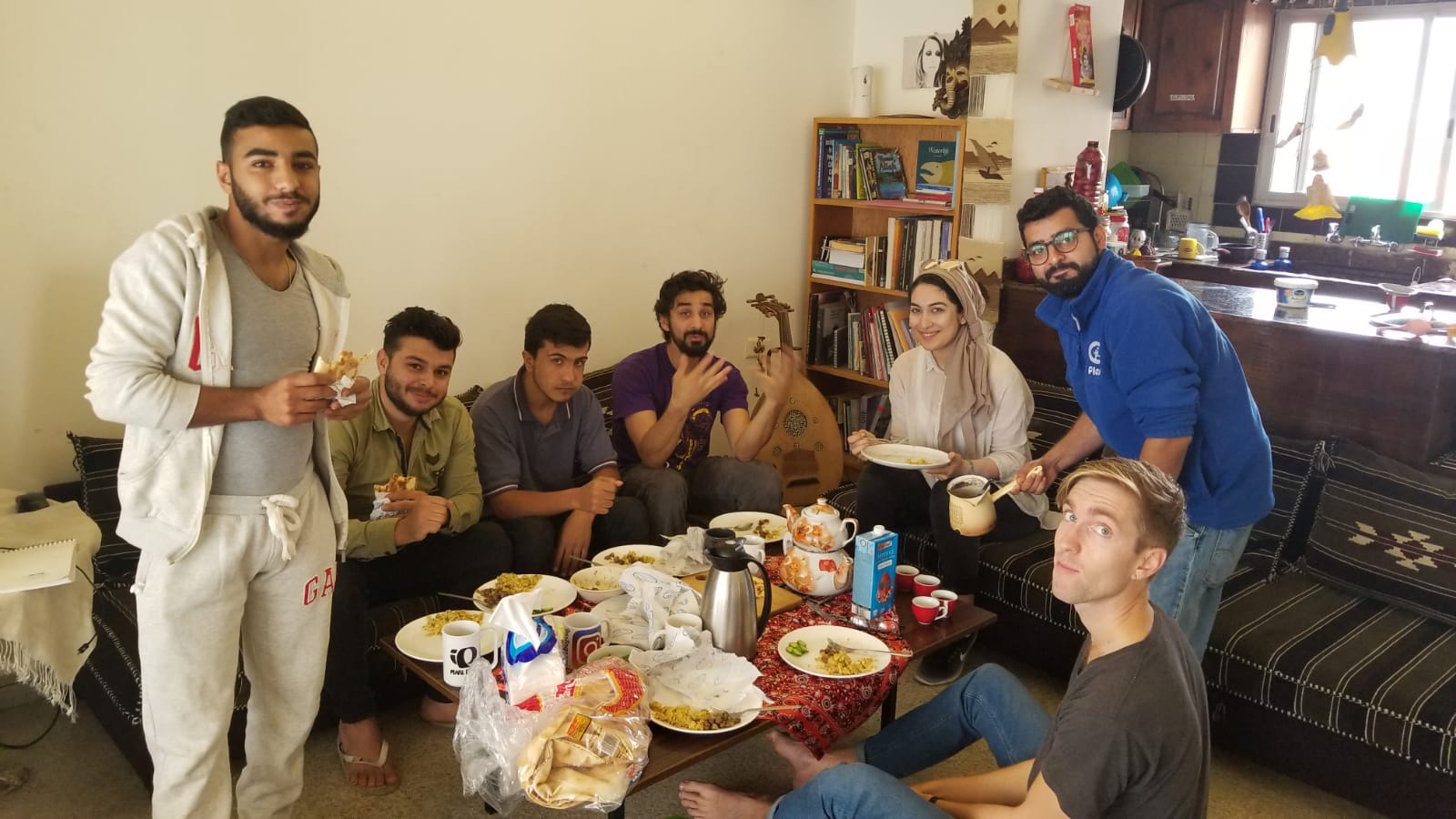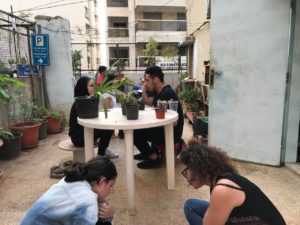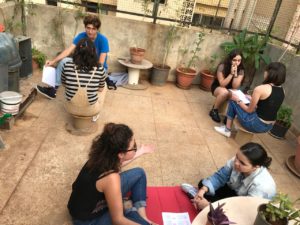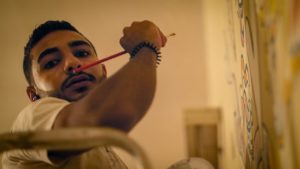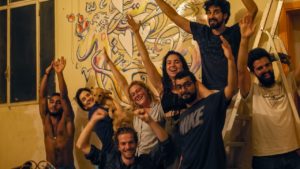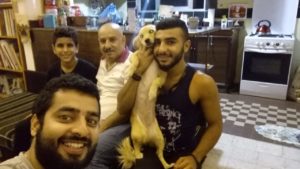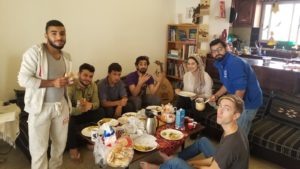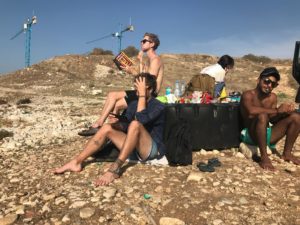On writing, connection, & alternative ways of seeing
The universe likes to put people in our paths that open us up to new ways of being in the world. That was how I found Beit al-Atlas seven months ago, after I met one of the house’s former residents, Tanja Van Deer, through a mutual friend. The house’s name refers to its role as a meeting point between people from different walks of life, and its founders, Bilal Ghalib and Saleh Saleh, envision it as a sustainable community house able to support arts programs, workshops, residencies, performances, readings, and gatherings for local as well as international artists.
I originally came to Beirut to visit friends, but also to work on my Arabic. Growing up Syrian American, I was constantly aware of the way that I and my family didn’t fit people’s expectations. I’ve written about aspects of this experience before, in the Paris Review and in Salon, and the intersection(s) of my relationships with both Syria and America have been major themes in many of my short stories and poems, as well as in my debut novel, The Map of Salt and Stars (Touchstone/Simon & Schuster, 2018). My Syrian-born father experienced a lot of racism and Islamophobia in the United States, and by the time my sister and I were born, he had already decided not to teach us Arabic. He must have believed it would make it easier for us to belong.
But belonging is not that simple. The Arabic I heard at
home—but was not allowed to speak—stuck in my ear, incomplete. Over the years,
it became dangerous to speak Arabic in certain places in America; it has become
more and more difficult to be openly Muslim as well. I sometimes think of my
Arabic the way I think of my faith, as a part of myself that I water and
nourish like a plant. Neglected, those parts of me will wither, but they won’t
disappear. Our roots and our experiences, like the people we meet and the
places in which we find ourselves, become a part of us.
As I’ve grown, I’ve embraced the fact that I can build a
different future for myself than the one my father imagined I would have. I can
shed other people’s expectations and limitations. I can direct my efforts
toward developing the parts of myself that I value, like my writing, my family,
my friendships, and my faith—and my Arabic. And by being authentically myself,
I can open the door to connect with other people, and hopefully encourage them
to be authentically themselves, too.
Language is not a goal in and of itself, but a door. Language is only as good as what it’s used for: to tell a story, to comfort, to connect. I speak five languages and understand several more for the same reason that I write: I want to connect with people who are different than me, including people I might never otherwise meet. I want to hear from them. I want to open myself up to other ways of seeing.
Beit al-Atlas is all about making these kinds of connections, which is why I’m so honored that Beit offered me a month-long residency during January. This month, we’ll produce a series of three workshops for local writers—in both Arabic and English—to produce a zine (a limited edition, hand-made mini-magazine) full of writing, drawings, and multimedia/music available here on Beit’s website that will document what’s going on creatively in Beirut right now. Hopefully, these workshops will also invite artists in different disciplines to get to know each other and help forge new connections and collaborations around the city.
As my first week here at Beit al-Atlas comes to a close, our work is just beginning. I hope you’ll join as at one of our workshops on January 16th (at the house), 18th (in the dahiyeh), and/or 27th (also at the house) and stop by to see what’s happening. Check out Beit al-Atlas’s Facebook event for more information about our first workshop!
This is the first part of a 3-part series of essays about my residency at Beit al-Atlas. Read the second essay here. Read the third essay here.
